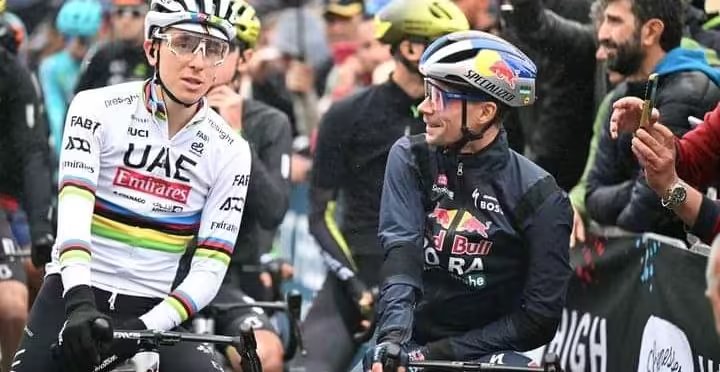Slovenia, a small country nestled in Central Europe, has emerged as a true cycling powerhouse, thanks in large part to two dominant athletes: Tadej Pogacar and Primoz Roglic. Though Slovenia has long been known for its winter sports, with athletes competing at a high level in skiing and ski jumping, cycling was once a lesser-known pursuit in the country. That has changed drastically over the past decade, with Pogacar and Roglic making Slovenia a prominent name on the international cycling scene.
Tadej Pogacar, born in 1998, and Primoz Roglic, born in 1989, represent different generations but share an unwavering determination and incredible talent that have catapulted them to the pinnacle of the sport. Their stories are unique yet equally inspiring, captivating fans around the world. Pogacar is known for his tenacity and aggressive style, unafraid to attack in critical mountain stages and take bold risks to outmaneuver his opponents. Meanwhile, Roglic’s transition from ski jumping to cycling in his early twenties is nothing short of remarkable; his resilience and calculated approach have made him one of the most consistent cyclists of his era.
Pogacar’s rise to fame has been nothing short of meteoric. He won his first Tour de France in 2020 at just 21, becoming one of the youngest champions in history. In 2021, he defended his title, solidifying his status as a world-class cyclist and a national hero. His accomplishments inspired a new generation of Slovenians to take up the sport, proving that even athletes from a small country can stand atop the cycling world. Pogacar’s aggressive racing style, fearless attacks, and strong finishes make him a thrill to watch and have won him admiration from fans globally. His combination of youth and skill suggests that he has many more years at the top.
Roglic’s story is equally compelling, but with a twist. Originally a ski jumper, he didn’t switch to cycling until his early twenties, an age when many cyclists are already well into their careers. Despite the late start, Roglic quickly adapted to the demands of road cycling and worked his way up to join the ranks of the best in the world. Roglic’s consistency in Grand Tours has been impressive, with multiple podium finishes in the Vuelta a España and strong performances in the Tour de France. His relentless drive and methodical racing style have earned him widespread respect. Together with Pogacar, Roglic has elevated Slovenia’s profile in international cycling and brought home numerous victories, putting Slovenia on the map as a serious contender in a sport typically dominated by nations with longer cycling histories.
The success of Pogacar and Roglic has had a ripple effect throughout Slovenia, inspiring young cyclists and prompting increased investment in cycling infrastructure and training programs. Local cycling clubs are now seeing a surge in interest, and Slovenian fans have embraced the sport, tuning in eagerly to watch their national heroes compete on the world stage. This newfound passion has the potential to make Slovenia not only a powerhouse in cycling but also a model for how smaller countries can produce world-class athletes through dedication and strategic investment.
Slovenia’s ascent in cycling is a testament to the power of perseverance and passion. Thanks to Pogacar and Roglic, Slovenia has transformed into a cycling superpower, and their legacy will likely inspire generations to come.
